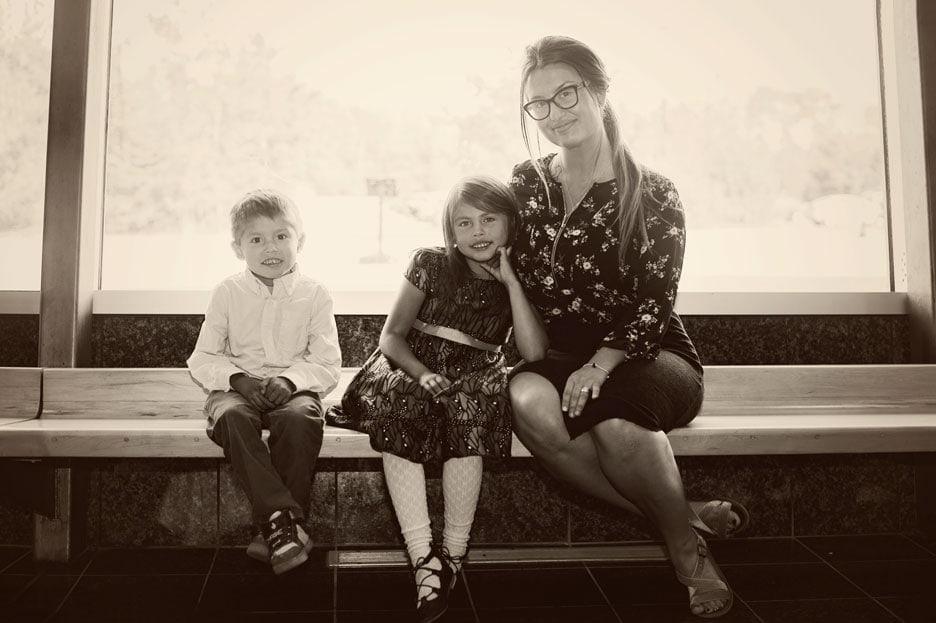- Home
- /
- Inherited Discrimination: The Legacy of the Indian Act

Discrimination is unfortunately not a light that we can turn off with just one flick. Despite the Canadian government’s numerous attempts at cleaning up the Indian Act, discrimination still runs rampant throughout it. Even more insidious, new and more pervasive forms of discrimination have emerged over the years.
When the Indian Act came into being in 1876, it stripped Indigenous women of their status and benefits when they married non-status men. Indigenous men, on the other hand, who married non-status women not only kept their status and benefits but even managed to pass these along to their wives and children.
In response to the enfranchisement of women who “married out”, the government brought forth Bill C-31 in 1985 and re-instated these women with 6(1)(c) status. The problem here is that a 6(1)(c) status tells the community that these women married out. To some, they are viewed as traitors. They are seen as “lesser” Indians or “not Indian enough”. Their children often suffer the same discrimination.
What’s more, 1985 amendments recognized that bands have the right to determine their own membership. Because of this, there have been many cases where Indigenous women and their children already living on reserves have lost benefits or have been denied membership. This is perhaps due to bands waiting for new membership codes to pass or perhaps because of discriminatory screening practices which deny women far more often than they deny men.
This stigma would certainly be enough on its own, but both the Inter-American Commission on Human Rights and the United Nations Committee on the Elimination of Discrimination Against Women have found that sex-based inequities within the Indian Act have contributed to the crisis of missing and murdered Indigenous women in Canada. If these women are regarded by the government as second class citizens, a devastating precedent is set: these women are disposable.
The MMIWG crisis has also paved the way for new bureaucratic challenges, as now parents of missing and murdered women are the ones to apply for status on their grandchild’s behalf. Because one must be the parent or legal guardian of a child applicant, grandparents face further red tape.
This is not the only issue Indigenous parents and grandparents can run into when applying for status on behalf of their child or grandchild. For years, unknown parentage has made it incredibly difficult for parents to navigate the already murky process of status registration. In cases of unknown parentage, there was a legal presumption that the unknown parent was non-status. A small victory came forth in 2010, thanks to Sharon McIvor’s hard work; now, an applicant must supply “relevant evidence” of their child’s unknown parentage to be given status.
What’s worse, this burden often falls on the mother’s shoulders as she must prove the paternity of her child; rarely is maternity unknown or questioned. In cases of incest, abuse, rape and prostitution, this makes the process all the more difficult and traumatic.
Indeed, discrimination against Indigenous peoples is not a light switch; it has trickle down effects that last for years, despite seemingly progressive legislation seeking to right what has been wrong.
But don’t lose hope. There is a solution.
NWAC is hopeful that after full-bodied national consultations regarding Bill S-3, the federal government will completely remove all discrimination from the Indian Act to make way for a brighter future for our Indigenous sisters and their descendants.
Recent BlogsPM Trudeau to announce today important protections for Arctic marine ecosystems, but the rising tide calls for greater climate action
Today, PM Trudeau and the ministers of Fisheries and Oceans, [...]
Consulting and Colonizing
The Intergovernmental Panel on Climate Change (IPCC) released its latest [...]
Toward UNDRIP: Bill C-262 and Partisan Attacks on Indigenous Rights
Parliament is debating a Private Member’s Bill introduced into the [...]
Balancing the Scales of Justice: Bill C-262’s implementation of UNDRIP is a necessary step toward reconciliation
NDP MP Romeo Saganash – Abitibi, James Bay, Nunavik, Eeyou [...]
Protesting Mistakes: Gender and Culture in the Review of Indian Register Decisions
The convoluted and confusing pathways to “Indian” status under the Indian [...]
For information, or to arrange an interview, contact:
communications@nwac.ca
343-996-4565
Pour obtenir plus d’information ou prendre des dispositions pour une interview, contacter:
communications@nwac.ca
343-996-4565